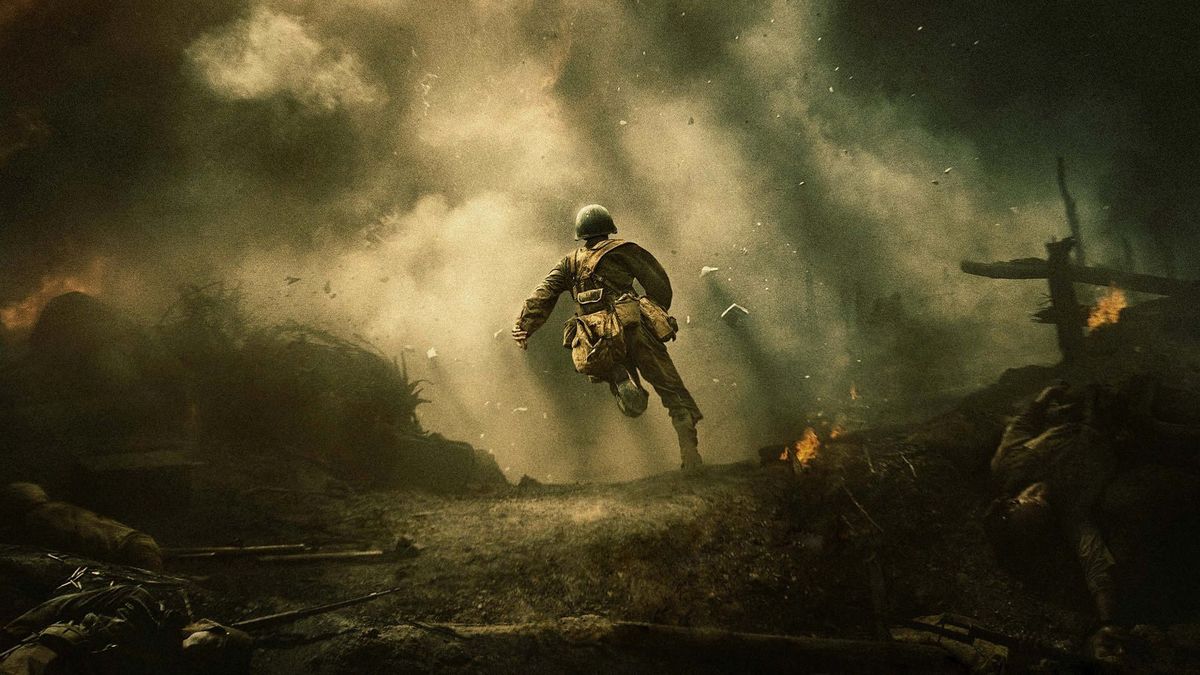Every time I watch the film I think about what it meant for him to commit suicide in his final days.
Did he refuse to be tortured after his capture or to have the whereabouts of his fellow prisoners questioned? Or was he fed up with the war already…?
His ass was blown off, but he was brave in his final moments, protecting his allies from a grenade.
It is an eternal masterpiece. I saw it as a child. It is the movie and drama that gave me an interest in World War II.
I love the scene in the Ardennes Forest where Spears runs across the German artillery position.

The pacific was a good TV show.
However, compared to the original book, the drama had some noticeable alterations to its own storyline.
For example, Eugene Sledge in the drama is in a bad mental state, constantly angry and hysterical as the story moves toward the latter half, but as far as the book written by Eugene Sledge is concerned, he was calm until the end of the war.
I wanted the soldiers to be portrayed as calm and professional throughout, like in Band of Brothers.
I was only disappointed in that part.
BTW, a trivia this drama hired a Japanese military advisor to instruct the Japanese soldiers in acting. His name is Yuki Nagashima.

It was the famous American actor Dale Dye who brought him into the drama.

Dale had appeared in Private Ryan and Band of Brothers, and as a former U.S. Army veteran, he advised on the military aspects of the drama and taught the actors how to act.
Dale felt the production of “The Pacific” needed a realistic portrayal of Japanese soldiers, so he brought in Yuki, with whom he had a personal relationship.
Yuki taught and mentored the actors playing the Japanese soldiers about the military and the mentality of the Japanese soldiers during WW2, and also played the role of a Japanese soldier himself.

He continues to teach and act as a Japanese soldier in “Hacksaw Ridge”.
If you ever have a chance to see those films, look for Yuki.
Oh, I saw that.
All war crimes are abhorrent. But because of the propagandistic nature of this film, I kept a little distance between the film and my mind, trying to be objective in my perception of history. (I do that with any film that has a propagandistic nature, even if it is a Japanese made film.) … However, the film was still a great film, and I was astonished when I first saw it and realized the influence of the film, noticing that some of the manga and anime I had seen had scenes referenced from the film. This is truly an amazing film.
This film is undeniably a war film, but it goes beyond the WW2 frame of historical reality and beautifully depicts the malice and insanity of human beings themselves.
The fantastic and beautiful images in the first half of the film are accompanied by eerily dissonant background music, and the protagonist’s daily life disintegrates and turns into a hell is so brilliant.


The beautiful scenes draw the audience in, followed by disturbing scenes that carefully unsettle them, and then a very cruel scene is shown. I felt like my heart was being torn apart.
And the second half of the story, which depicts all the vices, is simply overwhelming.

How could anyone come up with such cruelty as dragging the bodies of villagers around in a car or leaving an old man by the side of the road with his bed? This is what happens in the story. It is more horrifying and maddening than just being killed.
This is definitely one of the best war films of the 20th century, the ultimate war film.
It’s a great idea to portray a failed military operation, despite a huge budget and hiring a number of famous actors. The movie is more than 3 hours long, and while it is interesting, it is also a bit boring at the same time. lol
This is a masterpiece that makes you feel like you are being forced to watch a failed military operation.

I just recently found out that my grandfather had the exact same experience as this film.
My grandfather served in the Pacific War and never talked about the war to his family after he returned to Japan. When my grandfather’s son…that is, my father, passed away, the relatives gathered at his funeral told me that my grandfather had survived by eating the flesh of his comrades who had died in the war.
The person who told the story was my father’s childhood friend, the son of my grandfather’s comrade-in-arms. There were no jobs in Japan after the war, so my grandfather and his comrade-in-arms started a joint business and became like relatives.
My grandfather never told my father about the war, but the war buddy told his son a story about how he survived by eating human flesh. So my grandfather, who survived with him, had the same experience.
I then became interested in “Wild Fire” and read the movie and the original story, which was almost identical to what I had been told.
The men who died telling their comrades in the unit, "If I die, eat my flesh and live.
It’s just so horrifying.
It was a very foolish decision for Japan to go to war 80 years ago.




![]()























